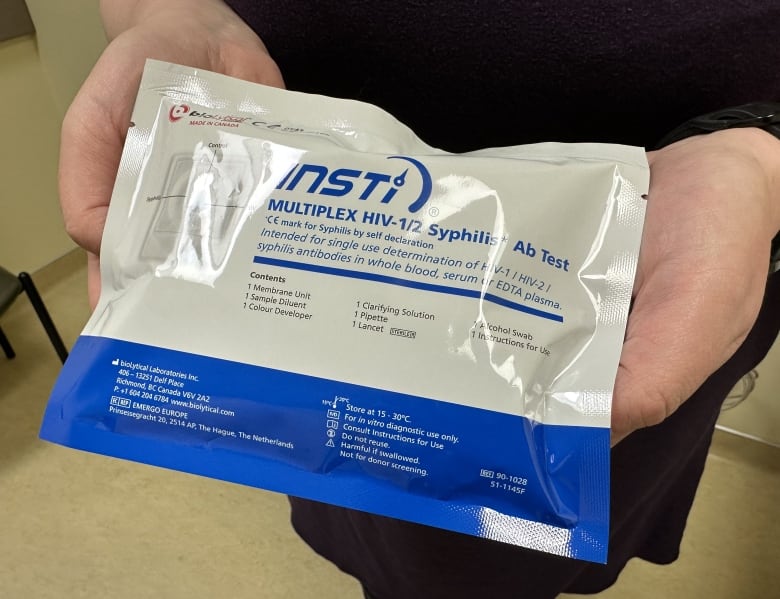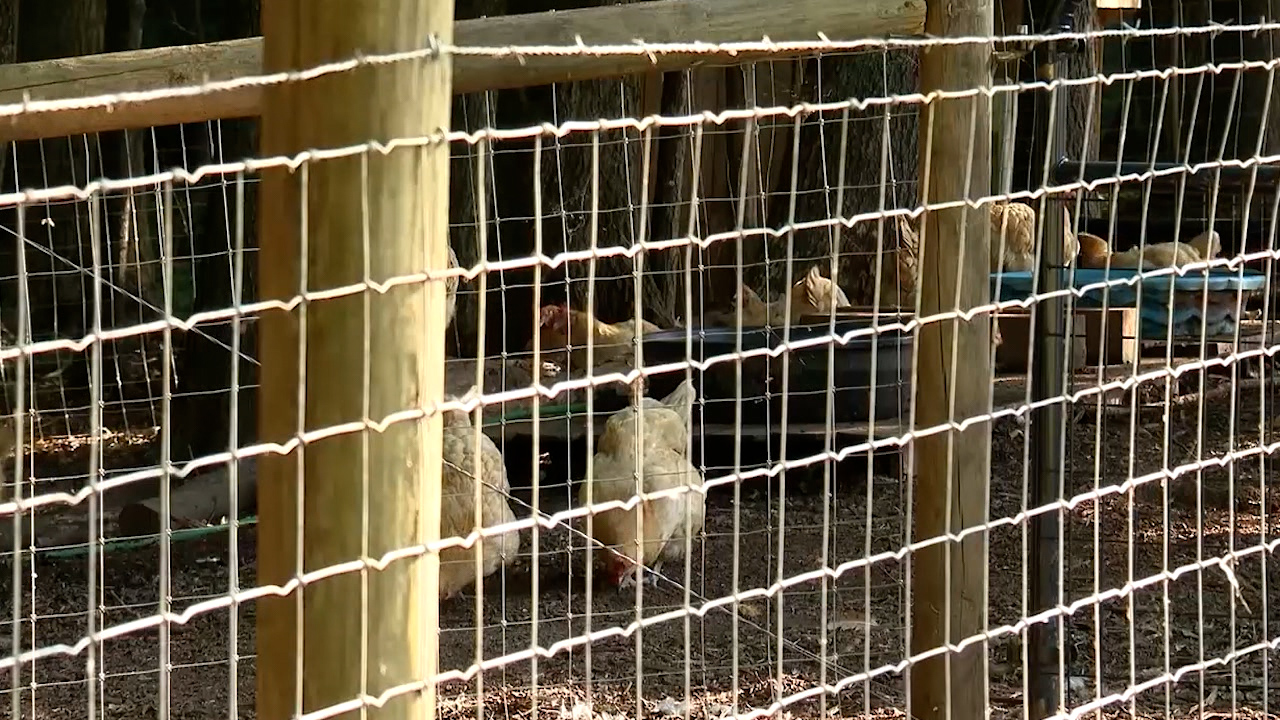Health
Yellowknife pop-up clinic to test for STIs amid ongoing syphilis outbreak

|
|
Nearly four years after first declaring a syphilis outbreak, the number of cases continues to climb in the N.W.T.
About 250 cases have been detected since public health declared the outbreak in August 2019.
In response, health officials will set up a pop-up clinic at the primary care centre in Yellowknife this Saturday, to test for STIs.
The process includes questions about sexual history to determine the best kind of test to be done. But Nancy MacNeill, who works in health promotion for the Northwest Territories Health and Social Services Authority, says that shouldn’t intimidate residents or discourage them from coming in.
“We really want to encourage people to talk more openly about STIs,” she said. “People have sex, STIs happen, it’s OK. Most of them are treatable. These ones are extremely treatable, and quickly.”
MacNeill says residents in all communities can contact their local health centre for STI testing.
The N.W.T.’s rate of chlamydia, gonorrhea and syphilis have been among the highest in Canada, and well above the national average.
Quick tests
Last year, the territory introduced rapid blood tests for syphilis, which can give preliminary results in as little as five minutes.
Rebecca White, a sexual health nurse in the N.W.T., says the tests are great for finding positive cases, which would then require further testing and monitoring.
But negative results don’t necessarily mean a person does not have syphilis.
An infection can take up to 12 weeks to be detected, or it could also have been too long since infection.
While it may no longer be infectious at that later stage, syphilis can still cause damage to the brain, heart and other organs if left untreated. Expectant moms can also transfer the infection to their baby.
The rate of babies born with syphilis is growing across the country.
“That’s one of the reasons we take syphilis so seriously,” said White.


She added more extensive blood tests will still pick up an infection that has reached that later stage.
Kristin Richardson, a nurse practitioner, explained that a positive case will get significant follow-up.
“We can provide adequate treatment once we know which stage it is and what treatment to provide,” she said.
If in the early stages, a person will get their blood tested at one, three, six and 12 months after detection.
“Once you have that effective treatment and we’re confident that the blood work is telling us the infection is gone, the syphilis itself is gone,” said Richardson.
But there’s always a risk of re-infection later.


Tricky symptoms
There’s no guaranteed way to identify syphilis without proper testing.
White says symptoms range from feeling like you have a flu, to rashes, to open sores, to nothing at all.
That’s why she suggests people with more than one sexual partner get tested every three months or so, while those with a steady partner should still be tested every year.
The pop-up clinic in Yellowknife on Saturday will be open from 11 a.m. to 4 p.m. and all appointments will be by walk-in only.





Health
It's possible to rely on plant proteins without sacrificing training gains, new studies say – The Globe and Mail


At the 1936 Olympics in Berlin, a scientist named Paul Schenk surveyed the eating habits of top athletes from around the world. The Canadians reported plowing through more than 800 grams of meat per day on average; the Americans were downing more than two litres of milk daily.
While there have been plenty of changes in sports nutrition since then, the belief that meat and dairy are the best fuel for building muscle persists. These days, though, a growing number of athletes are interested in reducing or eliminating their reliance on animal proteins, for environmental, ethical or health reasons. A pair of new studies bolsters the case that it’s possible to rely on plant proteins without sacrificing training gains, as long as you pick your proteins carefully.
The standard objection to plant proteins is that they don’t have the right mix of essential amino acids needed to assemble new muscle fibres. Unlike animal proteins, most plant proteins are missing or low in at least one essential amino acid.
In particular, there’s one specific amino acid, leucine, that seems to play a special role in triggering the synthesis of new muscle. It’s particularly abundant in whey, one of the two proteins (along with casein) found in milk. That’s why whey protein is the powdered beverage of choice in gyms around the world, backed by decades of convincing research, which was often funded by the dairy industry.
But one of the reasons whey looks so good may be that we haven’t fully explored the alternatives. A 2018 study by Luc van Loon of the University of Maastricht in the Netherlands, for example, tested nine vegetable proteins including wheat, hemp, soy, brown rice, pea and corn. To their surprise, they found that corn protein contains 13.5 per cent leucine – even more than whey.
Based on that insight, van Loon decided to pit corn against milk in a direct test of muscle protein synthesis. Volunteers consumed 30 grams of one of the proteins; a series of blood tests and muscle biopsies were collected over the next five hours to determine how much of the ingested protein was being turned into new muscle fibres. The results, which appeared in the journal Amino Acids, were straightforward: Despite all the hype about whey, there was no discernible difference between them.
A second study, this one published in Medicine & Science in Sports & Exercise by a team led by Benjamin Wall of the University of Exeter in Britain, had similar findings. Instead of corn, it used a mix of 40 per cent pea, 40 per cent brown rice and 20 per cent canola proteins. Since different plants have different amino acids profiles, mixing complementary proteins has long been suggested as a way overcoming the deficiencies of any single plant protein. Sure enough, the protein blend triggered just as much new muscle synthesis as whey.
On the surface, the message from these studies is straightforward: Plant proteins are – or at least can be – as effective as even the best animal proteins for supporting muscle growth. There are a few caveats to consider, though. One is that the studies used isolated protein powders rather than whole foods. You would need nearly nine cobs of corn to get the 30 grams of protein used in van Loon’s study, compared to just three-and-a-half cups of milk.
Another is that plants are generally harder to digest, meaning that not all the amino acids will be usable. That may not be a problem for healthy young adults consuming 30 grams of protein at once, which is enough to trigger a near-maximal muscle response. But for older people, who tend to have blunted muscle-building responses to protein, or in situations where you’re getting a smaller dose of protein, the details of protein quality may become more important.
Of course, the effectiveness of plant proteins won’t be news to notable plant-based athletes such as ultrarunner Scott Jurek or basketball star Chris Paul – but it’s encouraging to see the science finally begin to catch up.
Alex Hutchinson is the author of Endure: Mind, Body, and the Curiously Elastic Limits of Human Performance. Follow him on Threads @sweat_science.
Health
See how chicken farmers are trying to stop the spread of bird flu – Fox 46 Charlotte


CLOVER, S.C. (QUEEN CITY NEWS) — Poultry farmers across the Carolinas aren’t taking any chances. Many are turning to strict protocols as another wave of bird flu continues to threaten the chicken population across the country.
Since 2022, it is estimated more than 90 million birds have either died from the virus or were killed to prevent further spread in the U.S.
“We try to make them the happiest as possible. We always say a happy chicken is a tasty chicken,” owner of Eden Farms Adam Shumate said.
With their happiness in mid, Shumate also wants to keep his chickens alive and healthy. On his farm in Clover, he has implemented protocols to minimize a potential bird flu outbreak.
“We want to be prepared,” he said. “We feel like the things that we can do to prevent it first is the best case because we don’t want to start from scratch with a whole new flock.”
Because bird flu is commonly spread through bird droppings, Shumate is limiting the number of people coming into contact with his flocks. He says this would minimize the chances of someone walking onto the property with bird droppings on the bottoms of their shoes.
On top of monitoring the chickens closely, Shumate and his staff are constantly cleaning their equipment, including what they wear on their feet.
“We have specific shoes that are just for working with the flock and for when we are taking care of them,” Shumate said.
Other farmers, like Holly Burrell, haven’t let a visitor step foot near her hens in Gastonia for more than two years.
No visitors or outside cars are welcomed, and her chickens are separated in what she calls “tent cities.”
“We don’t want to do that because we want them to live their best life,” Burrell said in a 2022 interview with Queen City News.
Recently, health officials have detected bird flu in other animals like seals, squirrels and dolphins.
Earlier this month, bird flu was detected in one of the state’s dairy cow herds. While concerning, state health officials say the overall risk to the general public remains low.
“I’ve not heard of any cases, zero cases of people being affected by this virus associated with food consumption, milk consumption with egg consumption… any of these products we’re getting from farm animals is not really been associated with any human risk at this point,” said Dr. Michael Martin, director of the Veterinary Division at the N.C. Department of Agriculture and Consumer Services.
As of March 28, at least 80 birds in North Carolina were detected with the virus. Back in York County, Shumate says it all starts with the individual farms.
“When it comes to wildlife and things that that, there is only so much that you can do is be observant,” Shumate said. “Keep a healthy flock that way they can find off the infections that may come about.”
Health
CFIA Monitoring for Avian Influenza in Canadian Dairy Cattle After US Discoveries – Morning Ag Clips –


From the field to your inbox, the Weekend Edition of the Morning Ag Clips features stories, trends, and unique perspectives from the farming community. This laid-back edition is great for anyone looking for a fun weekend read.
Morning Ag Clips. All ag. All the time.
-
Business11 hours ago
Honda to build electric vehicles and battery plant in Ontario, sources say – Global News
-



 Science12 hours ago
Science12 hours agoWill We Know if TRAPPIST-1e has Life? – Universe Today
-
Investment15 hours ago
Down 80%, Is Carnival Stock a Once-in-a-Generation Investment Opportunity?
-
News16 hours ago
Honda expected to announce multi-billion dollar deal to assemble EVs in Ontario
-
Art22 hours ago
‘Luminous’ truck strap artwork wins prestigious Biennale prize in first for New Zealand – The Guardian
-



 Sports21 hours ago
Sports21 hours agoJets score 7, hold off Avalanche in Game 1 of West 1st Round – NHL.com
-



 Health11 hours ago
Health11 hours agoSimcoe-Muskoka health unit urges residents to get immunized
-



 Tech15 hours ago
Tech15 hours agoIndigenous Craft and Vendors Market a success in Halifax




